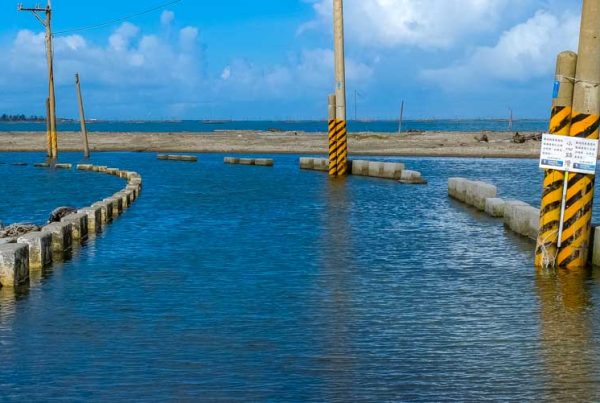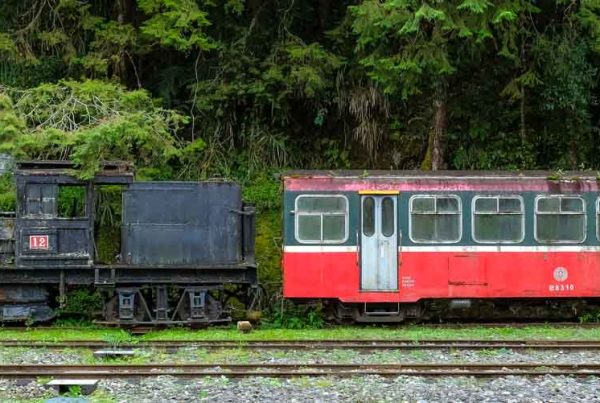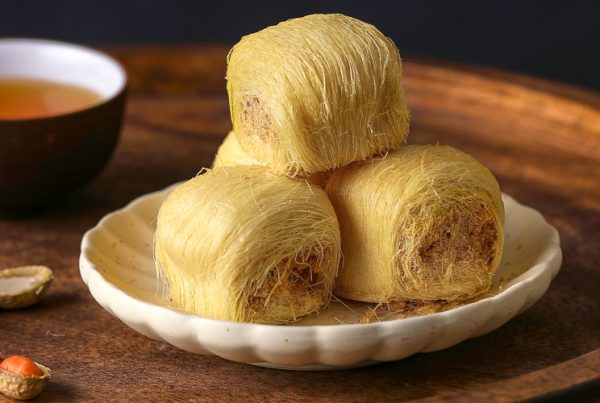Prepare to Be Swept Off Your Feet by this Old Town’s Southern Charms
TEXT | AMI BARNES
PHOTOS | ALAN WEN
In the late 2000s, Hengchun briefly enjoyed a moment in the limelight when it featured as the backdrop of a popular local romantic comedy, Cape No. 7. The crowds who came to visit the movie locations have long since dispersed, but this casual town with its art-village soul and laidback energy presents the ideal venue for a relaxing winter break.
Hengchun’s walls are undoubtedly its most distinguishing feature. When they were built, most of coastal Taiwan was under loose Qing rule. The island was experiencing reverberating unrest from the 1871 Mudan Incident – a pivotal event in Taiwanese history that paved the way for a punitive incursion by the Japanese military in 1874. The Qing authorities were newly alert to the threat presented by the indigenous population and had just lifted restrictions on building brick or stone fortifications in this part of Taiwan. By 1879 – just five years later – a sturdy 2.5km perimeter wall shielded Hengchun and its inhabitants – punctuated by a gate at each of the cardinal directions.



These days, Hengchun’s walls are Taiwan’s best-preserved example of such fortifications – all four original gates remain, and where the old walls were damaged, they’ve mostly been rebuilt or repaired. Walking along or – in places – on top of the walls takes just a couple of hours and is a wonderful way to get acquainted with the town.
In addition to the gates (three of which function as traffic ingress and egress points), there are several gander-worthy landmarks. Between the south and west gates, the low-lying form of Coral Park Path rises beyond a play park. Winding trails meander through exposed coral limestone, and at the top you’ll find modest views of the surrounding area as well as a stele commemorating fallen Japanese soldiers from the 1870s incursion. The monument was defaced post-WWII after the Japanese ceded Taiwan, but it still stands – an illegible footnote to a complex past.


Compact Guangning Temple faces the West Gate. The bright exterior conceals a modest hall built directly into the coral limestone, with idols crowding the altar. Outside, orchids adorn a tree deity – a protective spirit of the land according to a woman who paused to assuage our curiosity.

Moving on, from atop the North Gate we spied the towering cylindrical chimney and gaping archways of the defunct Lianfu Brick Kiln – now a registered historic monument. And not far beyond that is the odd, skeletal structure that hosts the annual Hengchun Qianggu Competition. Also known as the Ghost Grappling Festival, this colorful folk celebration takes place during the lunar calendar’s Ghost Month as part of the town’s efforts to entertain and appease wandering spirits. The event was banned for decades before being resurrected in the 1980s, and now teams from throughout Taiwan converge here each summer and compete to scale 23m-tall greased poles.


Completing the loop, a wooden walkway leads past a school baseball field, and once you’ve done enough wandering to become hungry, turning inwards will bring you to Hengchun Old Street – the city’s historic center, and a good place to go in search of quality moderate-price eateries.
Content
Hengchun Old Street
This isn’t exactly your stereotypical Taiwanese tourism-oriented “old street.” For a start, it’s less of a street and more of an area – specifically, the area radiating out from the junction of Zhongshan Road and Fude Road. Save for some teal-painted woodwork, there’s little in the way of traditional architectural flourishes – no red-brick arches or molded façades. Absent, too, are the usual stores selling tourist trinkets. Instead, you’ll find a mix of chic cafés, dusty everything stores, independent surfwear shops, traditional medicine clinics, and an overabundance of dessert joints.



Look closer and you might also discover a surprising number of stores selling onion-based products. The Hengchun Peninsula (or, more accurately, Hengchun Township’s neighboring Checheng Township) is nicknamed “Onion Kingdom” – legacy of a Japanese colonial-era decision to capitalize on the ideal onion-growing conditions created by the region’s strong winds. Even vegetarian eateries advertise onion specialties – a rarity given the majority of Taiwan’s vegetarians are onion-eschewing Buddhists.
Onion Farm
One shop that knows its onions is Onion Farm, a bakery located near the South Gate. It sells sweet and savory onion-based treats – think onion cakes in the style of pineapple cakes, cheese and onion cookies, and onion soft serve. The flaky onion pastries were a personal favorite (mild, moreish), but I can definitively say that onion ice lollies are an acquired taste.





Onion Farm
(洋蔥田)
Tel: (08) 889-7699
Add: No. 48, Nanmen Rd., Hengchun Township, Pingtung County
(屏東縣恆春鎮南門路48號)
Website: www.hengchun-onionfarm.com (Chinese)
Yu Jhen Siang Handmade Egg Rolls
On Zhongshan Road, Yu Jhen Siang Handmade Egg Rolls offers more oniony souvenirs. The store’s onion egg rolls have a light onion aroma and an even lighter taste. And of course, if onion isn’t your thing, there are plenty of standard flavors such as sesame, brown sugar, and matcha.




Yu Jhen Siang Handmade Egg Rolls
(玉珍香餅店)
Tel: (08) 889-2272
Add: No. 80, Zhongshan Rd., Hengchun Township, Pingtung County
(屏東縣恆春鎮中山路80號)
Website: www.siang.com.tw (Chinese)
But Who
As well as a proliferation of onion hawkers, Hengchun has a seemingly disproportionate number of cute cafés and hip hangouts – among them, But Who. This second-floor establishment sells drinks and baked goods from a converted loft-like room that is airy, artsy, and photogenic. The counter-cum-kitchen is located in a high-ceilinged room with exposed wooden beams and artwork by local artists, while a separate indoor-outdoor space has been fashioned from an old balcony.



The menu draws inspiration from local culture and produce. Our order included a salted butter croissant and a salty cucumber soda (both of which use reclaimed sea salt from nearby Houwan), a delicate canelé flavored with Pingtung-grown tea, and an onion-topped bun that’s only available during the windy season. Just one note of caution – travelers with kids should be advised that the business operates a no-children policy.





But Who
(伯虎在二樓)
Tel: 0901-109-527
Add: 2F,No. 48, Zhongshan Rd., Hengchun Township, Pingtung County
(屏東縣恆春鎮中山路48號2樓)
IG: www.instagram.com/but_who2f
FB: www.facebook.com/but.who2f
Tree Summer Ruin House
Just outside Hengchun’s old walls, on a patch of land reserved for the town’s Sunday night market, you’ll find another delightful escape – Tree Summer Ruin House. This café is a glass cube nestled within the crumbling walls of an old sisal rope factory building (sisal production was formerly a booming regional industry) and sheltered beneath the boughs of an aged royal poinciana tree.


The bright interior is filled with greenery and artfully mismatched furniture, so it was no surprise to learn that the owner had a previous life as an interior designer before ditching the big city rat race in favor of Hengchun’s more mindful pace.

A well-balanced drinks menu offers something for everyone, and the café also has a solid selection of brunch/lunch dishes, but where it truly shines is in its range of sweets and pastries. Among those we sampled were a cinnamon roll oozing gooey cream cheese icing, a caramel ice-cream puff, and honeyed French toast sprinkled with chili flakes – every single one a hit. It was a perfectly sweet conclusion to a short and sweet Hengchun holiday.






Tree Summer Ruin House
(樹夏飲事)
Add: No. 12-21, Hengxi Rd., Hengchun Township, Pingtung County
(屏東縣恆春鎮恆西路12-21號)
FB: www.facebook.com/glasshousekt







